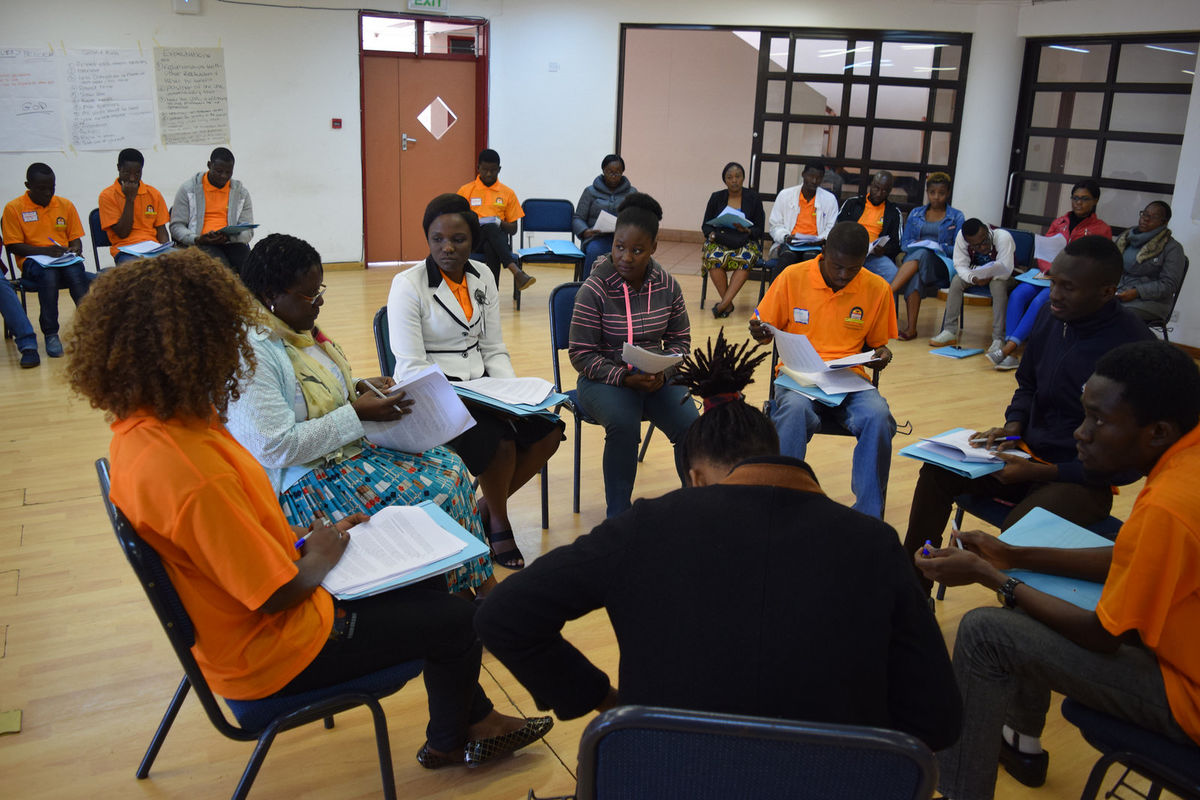Public Conversation on the draft revision of the Social Principles
Church and Society has been hosting listening sessions around the world on the proposed revisions to the Social Principles. Caroline Mutsago reports on two held in June for the Zimbabwe Episcopal Area and the Africa University.

The draft revision of the Social Principles was nothing like I expected to be.
Throughout the process, the participants did all the talking while the facilitators listened and took notes. I felt everyone was involved, included and valued. The experiences of participants, as representatives of the church in Zimbabwe, were rewarding.
The conversation was an amazing experience; church leaders, clergy, laity, women and men, young people all sitting down together in conversation, listening and scrutinizing different narratives of justice issues that exist in our communities and church.
I believe it was also an eye-opening experience for many. It was empowering to the participants. It inspired and motivated many office holders to go back and reshape some of the ministries they are already working on.
After the public conversation with the Zimbabwe Episcopal Area, we proceeded to Africa University and had another session with the students. This time the reporting was more in an informal way, with great, insightful discussions. The students were so hyped up. They would even share stories from their different backgrounds as they represented different African countries (i.e., Angola, Zimbabwe, Nigeria, Sierra Leone and Congo). They shared their dreams, hopes and passion for Africa.
This session had much diversity in perspective, philosophy and ideology. Allowing young people and students to be part of the revision, sit in, discuss and contribute was a neat experience. It showed that they have a voice that matters to the church.
One issue that brought about a lot of debate from both conversations was polygamy: women already in a polygamous relationship should not be discriminated against in church or any church ministry, at the same time monogamy should be embraced. For the African University students, the argument was more intense as they all had different strong opinions in regards to polygamy.
As a church, we need to create more safe spaces for people to be comfortable to share their stories. In this discussion, students felt free to share their personal stories as some grew in polygamous families, however with distinct experiences as the group was diverse with a few different African countries represented. However, it was also interesting to note that most of the students who disagreed with polygamy were women while most men were in support. In my opinion, I was impressed by how the women in this room were aware of their worth though there is still the need to deconstruct the masculinities that most men have.
The Social Principles help give us the foundation of our knowledge and values and guide our church and communities to action. In Zimbabwe, we have been using the Social Principles to organize our communities and congregants to transform their communities and have been working on different initiatives, (e.g., on advocacy against gender-based violence, child protection, waste management, education, health, livelihood projects to eradicate poverty, to name but a few).
The Social Principles have helped us to renew the church’s understanding of the gospel and its mission that of Jesus, who preached good news to the poor and was indeed among the poor and marginalized. The social principles are indeed a great tool that brings United Methodist together to act on justice issues.
Caroline Mutsago is a Church and Society organizer in the Zimbabwe Episcopal Area, a current master’s degree student in the Institute for Peace, Leadership and Governance at Africa University. She has also been a church and society fellow and a global mission fellow.